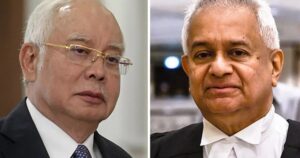
A Sabah leader has voiced support for the joint development of oil and gas resources in the disputed Sulawesi Sea, calling the initiative “the most practical path forward”.
State finance minister Masidi Manjun, however, insists that any arrangement must safeguard the state’s sovereignty and uphold the rights of its people.
He said recent talks involving Prime Minister Anwar Ibrahim, Sabah chief minister Hajiji Noor, and the Indonesian government had reinforced “a shared commitment to a practical, win-win cooperation” between the two nations.
“For Sabah, a commercial pathway that avoids confrontation serves our people best. Fighting over lines on the map would only delay development,” the long serving Karanaan assemblyman told FMT in an exclusive interview.
“What matters is that Sabah has a direct seat in these discussions, and any outcome should not sacrifice our territorial sovereignty. As far as Sabah is concerned, the cooperation is based on Indonesia’s recognition of our territorial rights.”
Bilateral talks between Malaysia and Indonesia to address overlapping claims to several oil- and gas-rich maritime blocks in the Sulawesi Sea off Sabah’s southeast coast, known in Indonesia as Ambalat, are ongoing.
The maritime dispute dates back to the 1970s, with tensions periodically flaring over incidents involving naval patrols and offshore drilling activities carried out by Pertamina and Petronas — the national oil companies of Indonesia and Malaysia, respectively.
Masidi said a joint development arrangement could peacefully unlock oil and gas assets that have remained trapped for decades.
By pooling technical and commercial resources, both Petronas and Pertamina would gain access to new production zones, while Sabah secures long-term revenues and jobs from projects that might otherwise remain stalled indefinitely.
This would build on the uptick recently experienced by the state in oil and gas foreign direct investment (FDI), while avoiding the confrontational stance adopted by Sarawak, which, analysts claim, has resulted in regulatory uncertainty.
Security risks
Both Sabah and Sarawak are frontiers of Malaysia’s resource wealth. However, their maritime zones lie in close proximity to several neighbouring countries, exposing both states to overlapping claims and the attendant security risks.
“The risks in our waters are real,” said Masidi, pointing to competing claims made in East Malaysia by China, Indonesia and the Philippines.
“However, we have full confidence in the federal government’s ability to manage security threats and safeguard our sovereignty,” he told FMT.
“Malaysia has excellent working relationships with our neighbours and this should ensure peaceful solutions to any situation.”
Analysts have previously noted that long-standing underinvestment has weakened Malaysia’s defence posture and questioned the country’s capacity to defend critical oil and gas assets.
In 2021, Malaysia had to scramble fighter jets after 16 Chinese military aircraft flew in tactical formation over disputed waters off the Sarawak coast — one of the more serious incursions to date.
However, Putrajaya has under the recently launched 13th Malaysia Plan allocated more defence spending to ensure readiness to confront sovereignty and security threats, particularly in the South China Sea, complementing plans announced previously for a new naval base in Bintulu.






